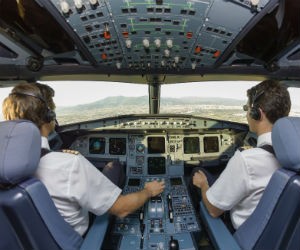While 2017 was reported to be the safest year for commercial airline passengers on record, a number of safety concerns remain including pilot fatigue and more modern, technological threats posed by lithium batteries, drones and lasers.
The British Airline Pilots’ Association (BALPA) welcomed two separate reports from Dutch consultancy To70 and the Aviation Safety Network that noted there were no passenger jet crashes in 2017. BALPA proceeded to urge the aviation industry “to remain vigilant to safety risks these figures might mask.”
“These early figures are great news and we hope these findings are an indication of what we can expect in the accidents statistics that will be released by [the International Air Transport Association] IATA later this year,” Steve Landells, BALPA Flight Safety Specialist, said in a press release. “Pilots work day-in, day-out to ensure flight safety. But it’s important we don't allow these good figures to breed complacency.
“Pilots have told BALPA that they are being pushed to their limits and have highlighted fatigue as a huge challenge for aviation,” he continued. “No one wants tired pilots on the flight deck and BALPA is working with regulators and airlines to create an industry-wide culture that understands and prioritizes fatigue.”
“We are also seeing a rise in the use of modern technology such as lithium batteries, drones and lasers and it is important that we ensure their use does not have a negative impact on flight safety.
“BALPA is working with the government to ensure it acts on its commitment to bring in regulations to tackle the rise in near misses with drones and the rise in attacks on aircraft by lasers swiftly in 2018.”
More information on the research from To70 and the Aviation Safety Network is available here.






